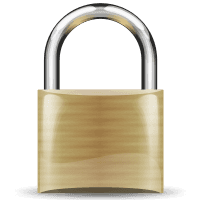First Publication Date: 16th August 2010
As per Section (37) of the Patents Act, 1970, a patent application under secrecy directions may not be refused by the Controller. Further, the patent application may proceed up to the grant of a patent, but the patent will not be granted and the order of grant of the patent will also not be published. If the patent application has been found in order for grant of the patent when the secrecy directions are in force, then the Central Government or any third parties designated by the Central Government may use the invention covered by the patent application for purposes of the Central Government, while considering the patent application as a granted patent. If the Central Government is of the opinion that the patent applicant suffered due to the secrecy directions in place on the patent application, then the Central Government may pay the patent applicant a suitable compensation, which depends on the novelty of the invention, utility of the invention and the purpose of the invention. Also, the decision to place secrecy directions may not be appealable to the Controller or to any Court (as per Section 41).
As per section (36) of the Patents Act, 1970, the Central Government have to review the secrecy directions every six months or on request by the patent applicant.
Image source here
Connect with me on Linkedin
To know more about BananaIP (Earlier known as Brain League) visit bananaip.com



